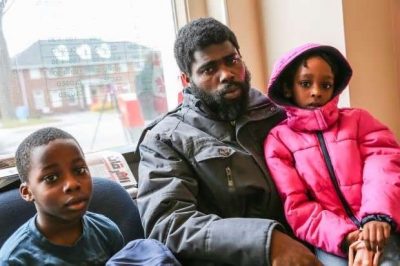Canada set to deport Nigerian family, the Bakares

A Nigerian family facing deportation in Canada has called on the Canadian government to provide any assistance possible to avoid returning to Nigeria.
The family feared that its two young girls — with another on the way — will be subjected to female genital mutilation in Nigeria.
Rasheedat Bakare, her husband Afeez, son Faaiq and daughter Faiqah all fled Nigeria and arrived in Canada in 2017. The family’s youngest daughter Farhana was born in Canada in 2018.
The family of five was denied refugee status on Thursday and were told to leave the country by 3 p.m. on Friday.
“My children’s life, my husband’s life is at risk,” said Rasheedat Bakare.
“We ran away because they wanted to circumcise my baby girl — the one I brought from Africa. When I got to Canada, I had another baby girl. Currently, I’m pregnant with another baby girl. Now [I’ll have] three baby girls — [and all of their lives are] going to be at risk.”
The family’s case caught the attention of the African Community Organization of Windsor (ACOW), a group that staged a protest on Friday outside the office of Windsor West NDP MP Brian Masse.
Claude Saizonou, president of the ACOW, said his group gathered outside Masse’s office because “we’ve been through this kind of situation so many times.”
“We never react. We never say anything,” he said. “And we just have [had] enough of it. We just want to stand up and say ‘If we don’t do it, nobody would do it for us.’ And this family has to stay today.”
On Friday afternoon, after Rasheedat — who is approximately five months pregnant — collapsed and was rushed to hospital, the government issued a temporary delay on the deportation order.
Afeez Bakare said he’s not sure when he and his family will be required to leave.
“I don’t want my life and my family to be in danger,” he said. “My wife is in a state where she is restless, she cannot do anything.”
Masse described the federal government’s treatment of the Bakare family as “heavy-handed,” adding that it was even logistically difficult for the family to comply with the deportation order in the first place, simply because of how little time was given.
At the same time, Masse pointed out that Farhana, who was born in Canada in 2018, is a naturalized citizen, complicating matters further.
“[There are] very significant issues related to health, personal safety and just the capability financially of being able to [leave the country],” he said.
Read the original at CBC/Radio-Canada via MSN

